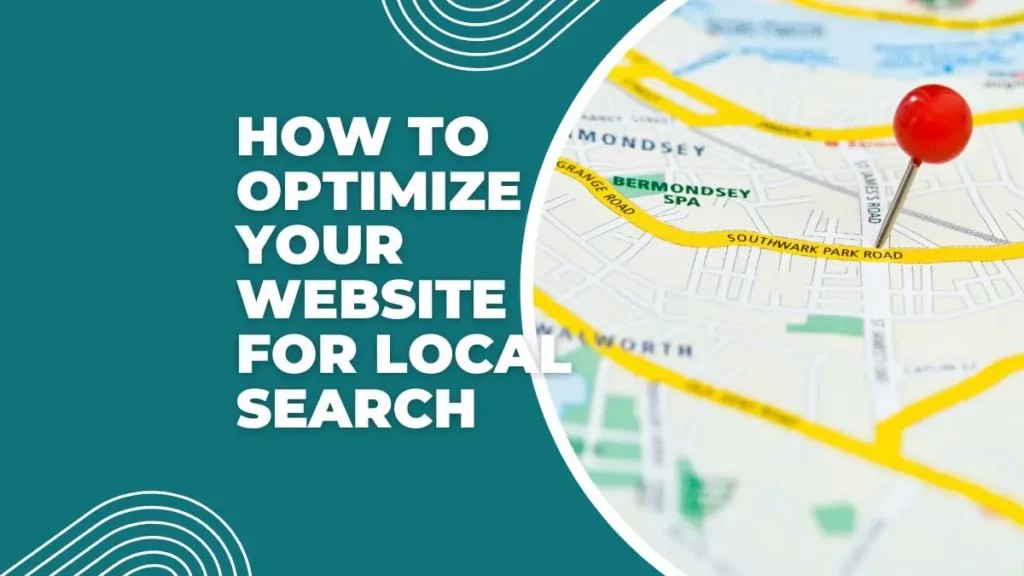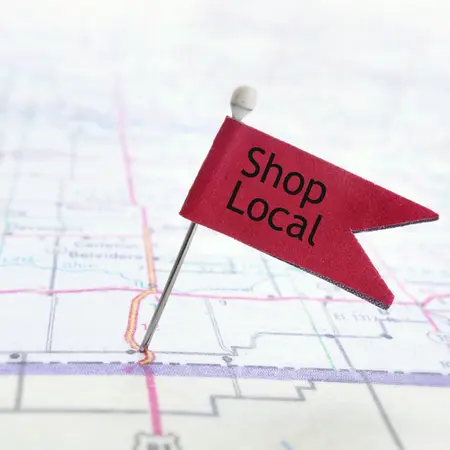
How to Optimize Your Website for Local Search
As a business owner, optimizing your website for local search is essential. This can be done by including location-specific information on your site—such as the type of products you sell and the neighborhoods where they’re available—so that potential customers can easily find what they are looking for when they search their area.

Why Local Search is Important
In today’s digital landscape, local search is vital to the success of any business. According to Google, over 80% of consumers use search engines like Google or Bing to seek information about products and services in their communities. If your website is not optimized for local search, you could miss out on potential customers.
Optimizing your website for local search requires combining on-page and off-page optimization techniques. This includes creating location-specific content, conducting local keyword research, optimizing your website for local search—and acquiring backlinks from authoritative sources in the area where you want to rank.
Understanding Local Search and its Impact on Businesses
The local search uses a search engine to find products or services in a specific geographic area. For example, if someone searches for a “plumber near me,” they conduct a local search.
Search engines increasingly show local businesses relevant to a search query at the top of their results page. This is because people conducting searches often want information or goods from nearby locations, and ranking local listings higher benefits both searchers and businesses.
Conducting Local Keyword Research
Conducting local keyword research is the first step in optimizing your website for local search. Local keyword research identifies the keywords and phrases people in your area use to search for products or services related to yours.
Several tools can help you conduct local keyword research, including Google Keyword Planner and SEMrush. These will give you a better understanding of the keywords and phrases people in your area search for when looking for products or services like those offered by your business.
When conducting local keyword research, you should focus on keywords relevant to your business and with a high search volume. You also need to consider the competition for each keyword and prioritize those with low competition levels.
On-Page Optimization for Local Search
Once you have identified the keywords and phrases that people in your local area use to search for products or services related to your business, you can optimize (or adjust) your website accordingly.
On-page optimization for local search includes several different techniques, including:
Including Location-Specific Information on Your Website
One of the most important aspects of on-page optimization for local search is including location-specific information on your website. Your business name, address, phone number, and other relevant details—such as hours in operation or directions from one’s current location —help users find what they’re looking for while making navigating through the directory listings easier.
Ensure this information appears on your website’s home page and all other relevant pages. The information should also be consistent across all your online listings—including Google My Business, directories, etc.

Creating Location-Specific Pages
Another important aspect of on-page search engine optimization is creating location-specific pages on your website. These pages should be optimized for the keywords and phrases people in your area use to find products or services like those you offer.
For instance, if you own a plumbing business in San Francisco and want to attract new customers, it might make sense for you to create a page on your website that is optimized for the keyword “plumber in San Francisco.” In addition to general information about your business and what you do, this page should include location-specific information, such as the address of the building that houses your office.
Optimizing Your Website Content
An intelligent way to optimize your website for local search is by including location-specific keywords and phrases throughout your site—on the homepage, in service pages, and as blog posts.
When optimizing your website content, you should create high-quality, valuable content relevant to your target audience—that way, it will help improve visibility in local search results and establish your business as an authority.
Off-Page Optimization for Local Search
Off-page optimization for local search includes several different techniques, including:

Acquiring Local Citations
On other websites, local citations are online mentions of your business’s name, address, and phone number (NAP). The more local citations you have—particularly from well-known sites that rank in Google’s index—the better off-page optimization for local search will be because it helps improve your business’s visibility in local search results.
You can submit your business’s information to online directories such as Yelp and Yellow Pages to acquire local citations. You can also reach out to other companies in your area and ask them to include a link on their website—this way if people search for the type of goods or services they offer, it helps increase the chances that potential customers will see yours.
Building Local Backlinks
Local backlinks are links from other websites that point to your website. They’re an essential aspect of off-page optimization for local search—helping improve your website’s authority and visibility in local search results.
To build local backlinks, you can contact other businesses in your area and ask them to include a link on their website that points to yours. You can also participate in local events and sponsor organizations if they are relevant.
Creating Location-Specific Content
Creating location-specific content is an essential aspect of local SEO. This includes creating blog posts, videos, and other content relevant to your audience—in this case, those living near your business.
When creating location-specific content, focus on creating high-quality, valuable information relevant to your target audience. This will help improve your website’s visibility in local search results and establish you as an authority on a particular topic in your industry.
Monitoring and Measuring Local Search Success
Monitoring and measuring the success of your local search campaign is an essential aspect of optimizing a website for organic search results. This will help you understand how well your site appears in these listings and identify areas where improvement may be necessary.
To monitor and measure your local search performance, use Google Analytics and Google Search Console. These tools report traffic to your website, its ranking in various search results, and user engagement with its content.


Closing Notes
Optimizing your website for local search is an essential aspect of online marketing for businesses of all sizes. By including location-specific information on your site, conducting keyword research specific to that region and optimizing it accordingly—and securing citations from relevant sites, You can boost your site’s ranking in local search results so that customers will be directed to you when they search for keywords related to what you offer.
Remember that you need to create a valuable, relevant piece of content for your target audience. Also, remember to monitor and measure the success of your local search—identifying areas where improvements are needed. These tips and techniques can help you optimize your website for local search, helping to take your business to the next level.
Digital Results will gladly assist you if you need assistance optimizing your website for local search and SEO. Feel free to reach out for a free 30-minute consultation, and we will have some of our digital marketing experts assist you and your team.




